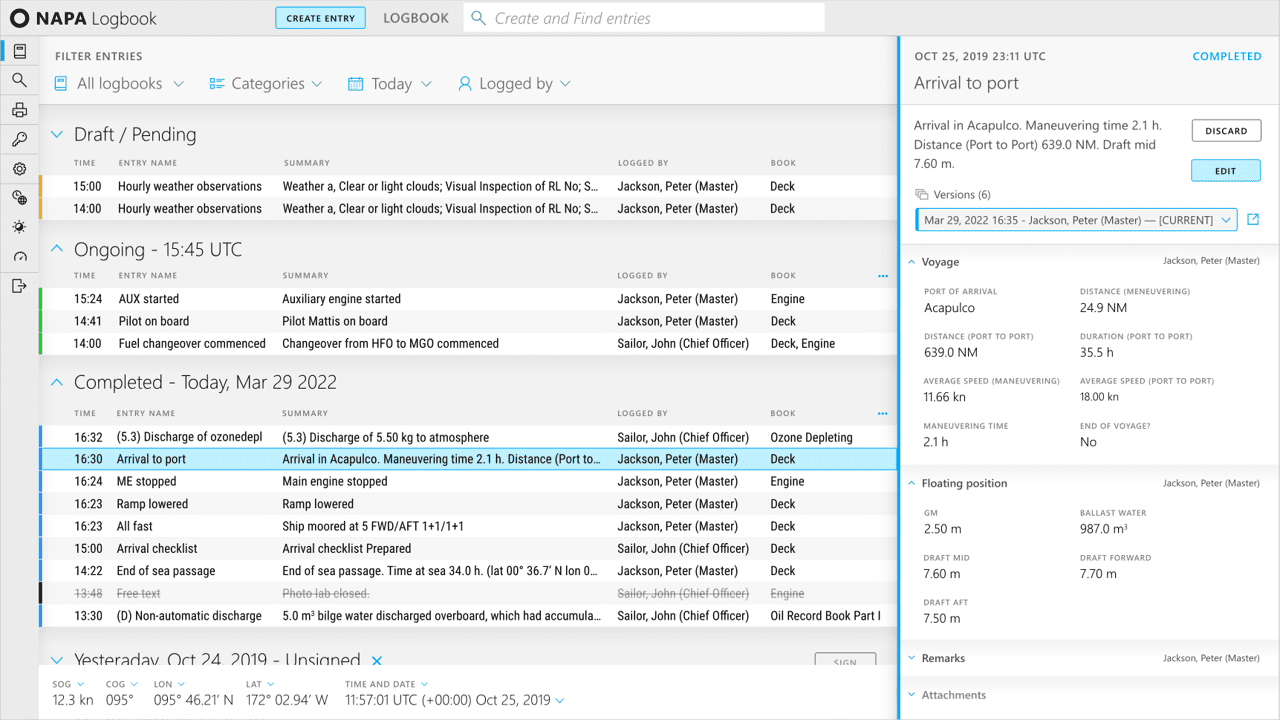April 30, 2024
New Garbage Record Book requirements: Are you ready?

1 May 2024 marks an important regulatory change for vessels of 100 gross tonnage or above on international voyages: they must now keep a garbage record book in addition to a garbage management plan.
This will result in enhanced reporting obligations for a much larger number of vessels. However, it also presents an opportunity. By using the right tools the obligation can turn into an opportunity to improve operations.
Let’s take a closer look at what the new Garbage Record Book requirements mean for the maritime industry. Also, what can the industry do to ensure compliance?
What does this change mean for the maritime industry?
In short, the requirement for mandatory garbage record books, which was already in place for vessels above 400 gross tonnage (GT) has now been extended to smaller vessels of 100 GT and above. This change was enacted by Resolution MEPC.360(79), which amended MARPOL Annex V and was adopted in December 2022. All ships certified to transport 15 or more people also fall under the scope of the Garbage Record Book requirement.
In practice, vessels will be required to keep records of their garbage handling operations, namely discharges to a reception facility ashore or to other ships, garbage incineration, permitted discharges of garbage into the sea, and accidental or other exceptional discharged or loss of garbage into the sea.
Who is impacted?
Shipowners, operators, and managers have the responsibility to ensure that their vessels falling under the extended requirements are equipped with a Garbage Record Book. And that the new reporting obligations are duly implemented on board.
However, it is of course shipmasters and crews who will have to record and report on all waste generated onboard and how it is disposed of on a day-to-day basis.
What should I do to ensure that my ships are compliant?
The best way of ensuring easy and efficient record keeping is – of course – to use an electronic reporting solution such as the NAPA Logbook. Why? It is type-approved and recognized by all major flag administrations, ensuring seamless reporting and compliance.
But NAPA Logbook goes one step further, enabling shipping companies to turn reporting obligations into an opportunity to improve operations. Electronic logbooks digitalize and integrate a wealth of onboard data on a ship’s waste. This enables shoreside teams to monitor that data, identify trends, and improve operational practices as a result.

This is not limited to Garbage Record books. Electronic logbooks can help improve any operational aspects, from fuel consumption to safety practices, depending on what KPIs a company wants to achieve.
[Learn more in our recent blog: Not your traditional e log – this logbook opens new avenues to ease compliance]
What comes next?
The expansion of the Garbage Record Book requirements is only one example in a fast-evolving regulatory landscape for shipping.
Another example just around the corner is the new format for Ballast Water record-keeping and reporting under the BWM Convention, which is expected to come into force on 1st February 2025. This is in line with amendments adopted by the IMO’s Marine Environment Protection Committee (MEPC) in July 2023, which included a guidance for the use of electronic record books under the BWM Convention.

The amendments aim to harmonize reporting by introducing new codes for the different ballast water operations. At NAPA, our team of logbook experts is at work. We ensure that shipowners are ready to transition smoothly to the new formats.
Another example is the ongoing revisions to MARPOL Annex IV to introduce a Sewage Record Book, which will impact how companies manage and report on their sewage discharges going forward.
These latest examples demonstrate how the roll-out of electronic reporting onboard will continue to increase in importance. Not just in ensuring regulatory compliance, but in making the most of new obligations to ensure strong, resilient businesses and efficient, sustainable operations.
